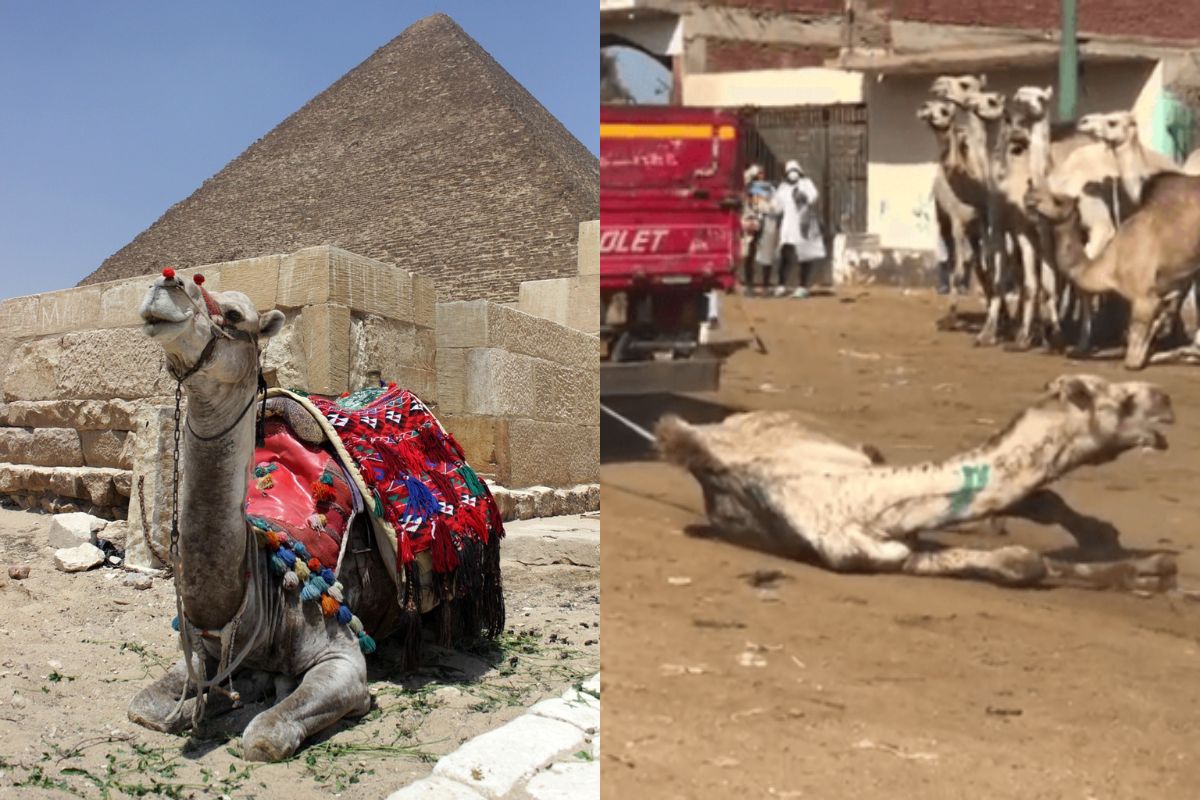Camel tours sold in Egypt and other countries hide terrifying abuses, reported by tourists and animal rights activists. Don't buy these experiences and don't finance this business on the skin of animals

@Pixabay – Peta
Camels in Egypt and other Middle Eastern countries endure unimaginable cruelty both before and after being used in tours at major tourist sites. These animals are often hidden under stoles and traditional colorful decorations, masking scars that cover their bodies. They are whipped, beaten until bloody, yanked around, and transported to locations bustling with tourists eager to purchase unforgettable camel rides.
The horrors of this industry were documented years ago by the animal rights organization PETA Asia at the notorious Birqash market—a place where camels are bought and sold. Here, these animals are treated as objects, or perhaps even worse. The prime specimens are selected and crammed onto trucks destined for Egypt’s most popular sites. Their legs are tied to prevent them from escaping and rebelling.
Egypt’s Shameful Treatment of Camels
A new PETA exposé shows camels being hit, tied, and dragged for tourist rides and more at Egypt’s Birqash Camel Market 😠
Posted by PETA UK on Thursday, March 30, 2023
The merciless treatment of camels
These camels endure kicks and lashings to tame them and ensure they obey commands. Many suffer from open wounds infested with flies and never receive medical treatment. Traders show no mercy and care little for the well-being of these animals.
When there is a chance to make a profit, it is seized immediately. Camel tours, photos alongside camels—all are marketed aggressively. Once an animal is no longer useful, it is taken back to the market.
The tragic end of a working camel
Camels at the end of their careers are exhausted and unable to stand or take another step. They are then dragged, often tied to a vehicle. These living carcasses are eventually sold for their meat and slaughtered without any scruples.
In Egypt, such situations are often reported by tourists, horrified by what they see. In 2020, horse and camel rides at the Giza pyramids and other major archaeological sites were banned.
However, many locations in Egypt still exploit and abuse camels and horses. This ancient land of the Pharaohs is not an isolated case; similar practices occur in neighboring states as well.
The images from investigations conducted in these places should open our eyes and lead us to unequivocally reject any tourist experiences involving animals. Purchasing them finances suffering.
